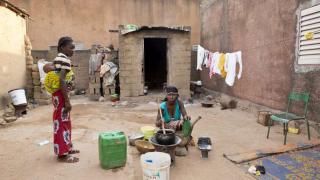
The UN today warned that the increasing ethnic tensions in Mali could have "alarming consequences", after the Office of the High Commissioner for Human Rights released a report documenting a number of serious human rights in the country, including amputations, rape, torture, extrajudicial killings and the use of child soldiers.
The situation in Mali has been steadily deteriorating since March 2012, when middle-ranking officers of the armed forces rebelled against the government and took control of the north of the country. Other groups took advantage of the ensuing chaos: secular Tuareg rebels seeking independence for their northern homeland, and a number of Islamist groups, some with ties to al-Qaeda’s North African branch.
In recent months, fighting has intensified. Swathes of the country are no longer under government control. The UN estimates that 150,00 people have fled, while 230,000 are internally displaced. It now believes that as many as 700,000 more could be affected. Mauretania and Burkina Faso already host nearly 100,000 Malian refugees. UN agencies are trying to scale up operations in a region already under duress.
As the situation has disintegrated into chaos, the international community has begun to support the Malian government. On 20 December 2012, the Security Council unanimously adopted Resolution 2085 under Chapter VII of the UN Charter, which emphasised the Malian government’s responsibility to protect civilians and authorised the deployment of an African-led International Support Mission in Mali to help rebuild the Malian government’s capacity to uphold this responsibility.
At present, the government of France has the most troops on the ground, reaching 1,400 today. Its decision to intervene militarily in the country was taken in agreement with Mali's President, Dioconuda Traoré, and was endorsed by the Security Council earlier this week. The Council expressed "grave concern" at the military movements and attacks by extremists, which it said constituted a direct threat to international peace and security. It also reiterated its call for states to assist in the settlement of the crisis. Troops from countries in the region - notably Chad and Nigeria - are expected to be deployed soon. The UK has provided two cargo planes to assist the French effort.
The French intervention has been largely welcomed by the Malian press. To date, it represents a decisive response, with the consent of the Malian government and Security Council, to protect civilians by helping the government to regain control of rebel-held territory. However, it should be noted that today's report links the current situation to longstanding unresolved issues, and points to abuses committed in the north but also in areas under government control.






